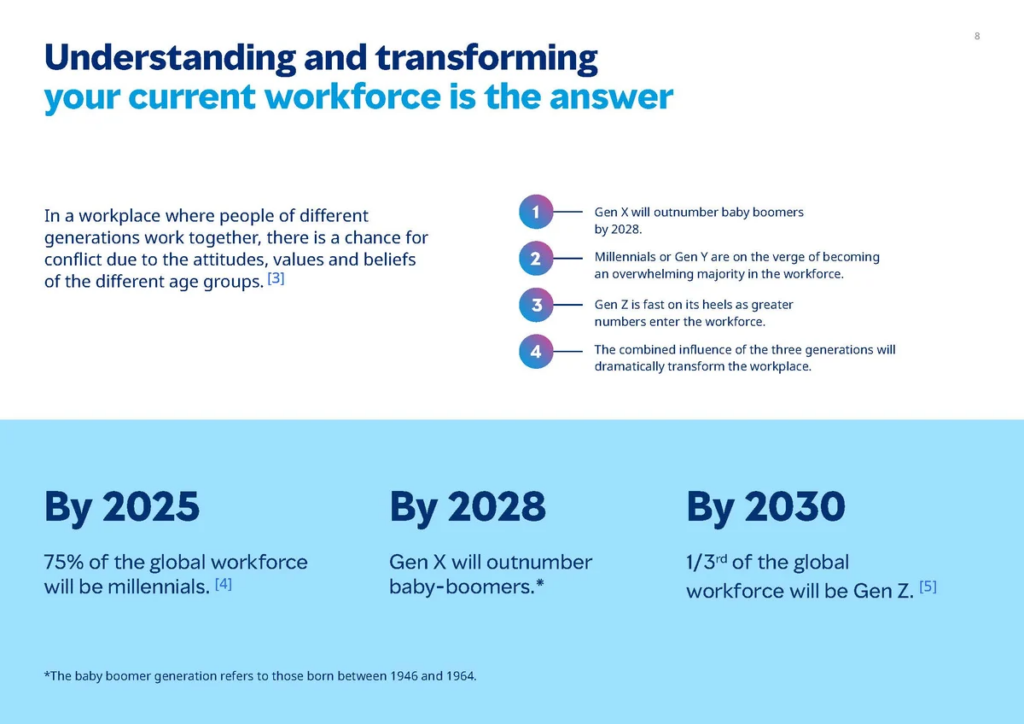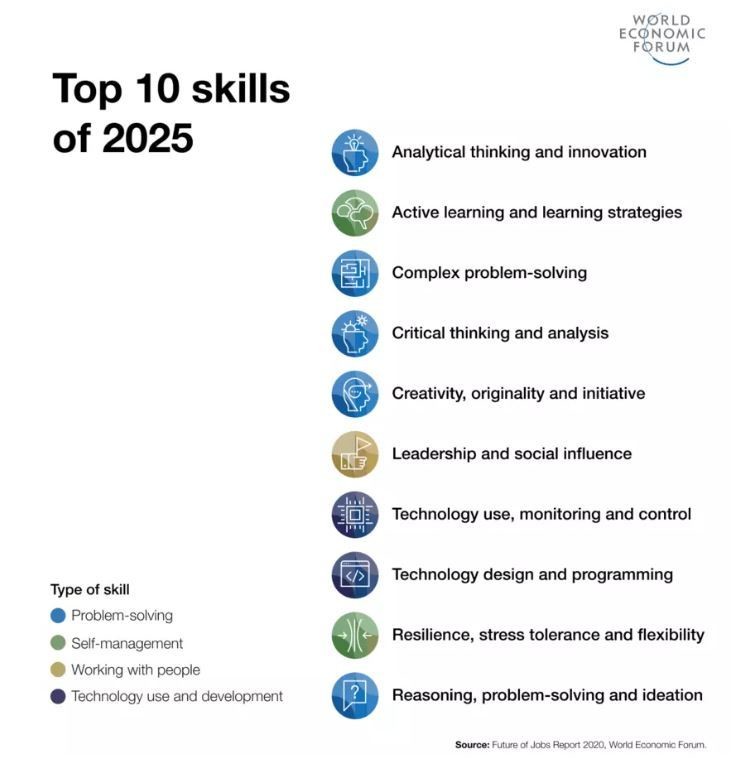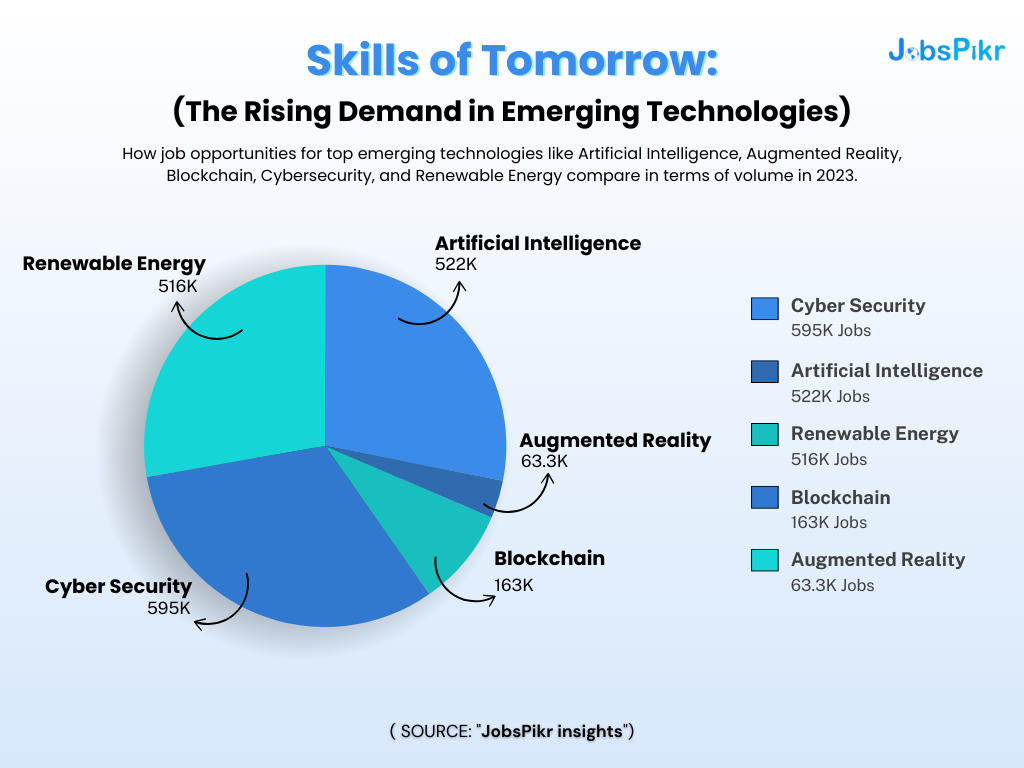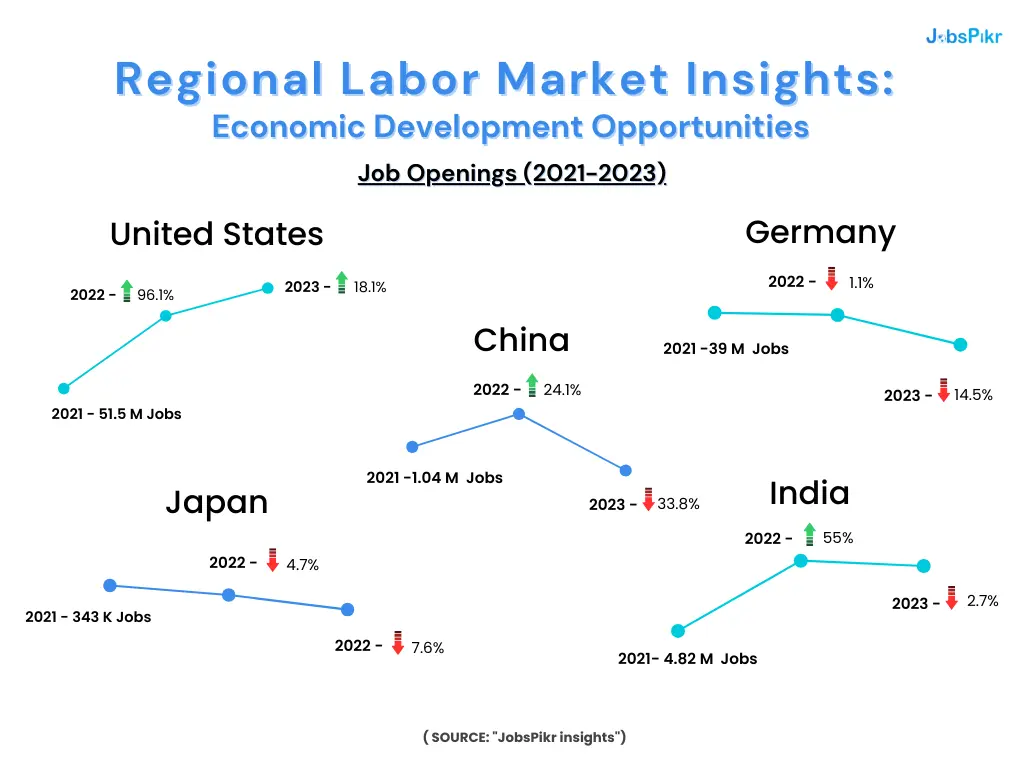Introduction to the Skill Index
The Global Skill Index serves as a vital resource that maps the evolving landscape of workforce skills across various industries. It synthesizes data from diverse sources to present a clear picture of skill demands, emerging trends, and future requirements. By analyzing this index, organizations and job seekers can make informed decisions about hiring, training, and career development.
The index is not just a static report; it’s a dynamic tool that reflects the real-time shifts in skill requirements, helping stakeholders to adapt to the fast-paced changes in the labor market.

Image Source: Mettl
Why Skill Demand Matters for Employers and Job Seekers?
Tracking skill demand is paramount for several reasons:
- Workforce Planning: Organizations can effectively align their talent acquisition strategies with market needs by understanding which skills are in demand. This foresight allows companies to preemptively fill roles with the right talent, minimizing downtime and operational inefficiencies.
- Skill Development: Continuous assessment of skill demand helps identify training needs for existing employees. Companies can tailor their development programs to ensure their workforce remains competitive and capable of handling new challenges.
- Competitive Advantage: Businesses that proactively stay ahead of skill trends are better positioned to compete in their markets. Organizations that invest in skill development not only improve employee satisfaction and retention but also enhance their overall productivity and innovation capacity.
How Skill Index built? Methodology and Data Sources Explained
The report leverages extensive data collected from various sources to provide a holistic view of skill demands:
- Job Postings: Utilizing data from over 1 million job listings daily, we analyze job descriptions to extract relevant skills and qualifications sought by employers.
- Surveys and Industry Reports: We incorporate findings from surveys conducted with industry professionals and analysis of sector-specific reports to capture insights on skill requirements and trends.
- Collaboration with Experts: Our partnerships with experts in HR and talent development provide contextual understanding and enhance the credibility of our findings.
- Government and Educational Data: We include data from governmental labor statistics and educational institutions to understand the broader landscape of workforce development and emerging trends.
In-Demand Skills: Insights from the Global Skill Index
What Skills are Most in Demand Globally?
The analysis identifies several key skills that are currently in high demand globally:
- Digital Skills: Proficiency in data analytics, cloud computing, and cybersecurity are among the most sought-after skills. As organizations increasingly rely on technology for operations and decision-making, the demand for skilled professionals in these areas continues to rise.
- Soft Skills: Skills such as leadership, communication, and adaptability are increasingly sought after by employers. The ability to navigate complex interpersonal dynamics and lead teams effectively is essential in today’s collaborative work environments.
- Technical Skills: Specialized knowledge in areas like artificial intelligence (AI), machine learning (ML), and data visualization is critical as businesses seek to harness these technologies for competitive advantage.

Image Source: LinkedIn
High Demand Skills Across Sectors
- Information Technology (IT): The IT sector is experiencing a surge in demand for skills such as:
- Cybersecurity: With increasing threats to digital security, organizations are prioritizing professionals skilled in protecting sensitive data.
- Cloud Computing: As businesses migrate to cloud platforms, expertise in managing cloud infrastructures is crucial.
- Data Analysis: Companies need data analysts who can interpret complex data sets to inform strategic decisions.
- Healthcare: The healthcare industry requires professionals with:
- Patient Care Skills: As the population ages, there is a growing need for healthcare workers who can provide quality patient care.
- Telehealth Proficiency: The rise of telemedicine necessitates training in virtual care delivery and technology usage.
- Medical Coding and Billing: Accurate coding is essential for healthcare providers to ensure proper reimbursement and compliance.
- Finance: In the finance sector, critical skills include:
- Financial Analysis: Professionals who can analyze financial data to guide investment strategies and risk management are in high demand.
- Regulatory Compliance: As regulations evolve, there is a need for experts who can navigate compliance requirements.
- Manufacturing: The manufacturing sector is witnessing a demand for:
- Automation Skills: Expertise in automation technologies is crucial for improving efficiency and productivity.
- Quality Control: Professionals skilled in maintaining quality standards are vital for operational excellence.
- Retail: The retail landscape is changing rapidly, leading to a demand for:
- E-Commerce Strategy: As online shopping grows, businesses need skilled professionals to develop and manage e-commerce platforms.
- Customer Relationship Management: The ability to manage customer relationships effectively is key to retaining and attracting customers.
What Skills Will Be in Demand in the Future?
Looking ahead, certain trends are likely to shape the future of skill demand:
- Increased Automation: As automation technologies become more prevalent, there will be a growing need for professionals who can design, implement, and maintain these systems.
- Data-Driven Decision Making: The ability to analyze and leverage data for strategic decision-making will be paramount. Organizations will require individuals with advanced data analytics skills to remain competitive.
- Sustainability Skills: As businesses focus on sustainability, skills related to environmental management and green technologies will become increasingly important.

Image Source: World Economic Forum
Insights from JobsPikr Data
Our analysis of data from JobsPikr reveals several key trends:
- Remote Work Skills: The shift to remote work has increased demand for skills related to virtual collaboration and project management. Organizations are looking for individuals who can effectively lead remote teams and maintain productivity.
- Digital Marketing Skills: With the rise of e-commerce, skills in digital marketing, including SEO, content marketing, and social media management, are crucial for businesses seeking to enhance their online presence.
- Sector-Specific Demands: Certain sectors, such as healthcare and technology, are witnessing accelerated growth and demand for skilled professionals, highlighting the need for targeted training initiatives.
Unique Insights Derived from Our Data
Our data analysis has provided unique insights, including:
- Geographical Variations: Skill demand varies significantly by region, with urban areas experiencing a higher demand for tech skills compared to rural regions. Understanding these regional differences can inform targeted recruitment efforts.
- Multi-Disciplinary Skills: The increasing complexity of work necessitates professionals who possess multi-disciplinary skills, combining technical knowledge with strong interpersonal abilities.
Case Studies and Success Stories
- Tech Company X: A leading tech firm adopted a continuous learning approach, leading to a 25% increase in employee productivity. They implemented an internal training program that allowed employees to learn new technologies and processes relevant to their roles.
- Healthcare Organization Y: A prominent healthcare provider focused on telehealth training for their staff, resulting in a 40% increase in patient satisfaction. By investing in skill development, they enhanced service delivery during a critical time.
- Manufacturing Firm Z: A manufacturing company embraced automation and reskilled its workforce, resulting in significant cost savings and efficiency gains. Their investment in training helped them stay competitive in a rapidly evolving industry.
Skill Development Index
What is Skill Development Index?
The Skill Development Index measures the effectiveness of skill training programs across various industries. It evaluates factors such as course relevance, employee engagement, and skill acquisition rates.
Why Skill Development Matters?
Skill development is essential for several reasons:
- Career Progression: Employees equipped with new skills are more likely to advance in their careers. Investing in employee development leads to higher job satisfaction and retention rates.
- Organizational Growth: Companies that invest in training are better prepared to adapt to industry changes. A skilled workforce can drive innovation and improve operational efficiency.
- Economic Impact: On a broader scale, skill development contributes to economic growth by enhancing workforce productivity and competitiveness.
Global Skill Development Trends
Key trends in skill development include:
- Increased Investment in Online Training: Organizations are increasingly turning to online training platforms to provide flexible and accessible learning opportunities for employees.
- Emphasis on Soft Skills Training: Companies are recognizing the importance of soft skills and are incorporating training that focuses on leadership, communication, and teamwork.
- Collaboration with Educational Institutions: Many organizations are partnering with educational institutions to align curricula with industry needs, ensuring that graduates possess the skills required by employers.
In-Demand Skill-Building Strategies
Organizations are adopting various strategies to build in-demand skills, such as:
- Upskilling and Reskilling Initiatives: Companies are offering employees opportunities to learn new technologies and processes to keep pace with industry changes.
- Mentorship Programs: Pairing employees with experienced mentors facilitates knowledge transfer and supports career development.
- On-the-Job Training: Practical, hands-on training allows employees to apply their skills in real-world settings, enhancing their learning experience.
Impact of Technology on Skill Demand
Technology is reshaping the skill landscape in several ways:
- Driving Demand for Digital Literacy: As businesses increasingly rely on digital tools, the demand for digital literacy skills has skyrocketed. Employees must be proficient in using software applications and online platforms.
- Encouraging Soft Skills Development: Virtual collaboration tools have heightened the importance of soft skills such as communication and adaptability, as teams work together in diverse and remote environments.
- Facilitating Access to Online Learning Resources: Technology has democratized access to education, allowing employees to engage in self-directed learning through online courses and training programs.
Future Skills Needed for 2024 and Beyond
Looking ahead, certain skills will become increasingly important:
- Advanced Data Analytics: Professionals who can analyze large datasets and derive actionable insights will be essential as organizations seek to leverage data for decision-making.
- AI and Machine Learning Expertise: As AI technologies advance, there will be a growing demand for individuals who can develop and implement AI solutions across various sectors.
- Interpersonal and Emotional Intelligence Skills: The ability to navigate complex interpersonal relationships and demonstrate emotional intelligence will be crucial in collaborative work environments.
Comprehensive Global Skill Gaps Analysis Report
The Global Skill Gap Analysis Report provides an overview of the discrepancies between the skills employers need and those available in the workforce. This analysis helps identify areas where targeted training and development efforts are required.
Key Findings from Skill Gap Reports
- Widespread Skill Shortages: Across various industries, employers report difficulties in finding candidates with the necessary skills, highlighting the urgent need for targeted skill development initiatives.
- Emerging Skills Outpacing Training: As new technologies and practices emerge, the pace of skill development is lagging, resulting in a growing skills gap.
- Sector-Specific Skill Gaps: Certain sectors, such as IT and healthcare, face more significant skill gaps, necessitating focused training programs to bridge these divides.
Addressing Skill Gaps in Various Industries
Organizations can take several steps to address skill gaps, including:
- Collaboration with Educational Institutions: By partnering with universities and colleges, companies can help shape curricula that align with industry needs.
- Creating Internship and Apprenticeship Programs: These programs provide hands-on experience for students and entry-level employees, allowing them to gain the skills necessary to succeed in their careers.
- Investing in Continuous Learning: Organizations can foster a culture of continuous learning by providing employees with access to ongoing training and development opportunities.
Analyzing Skill Demand by Sector:
1. Information Technology (IT)

Currently, cloud computing skills are among the most sought-after in the IT sector. As businesses migrate to cloud solutions, professionals with expertise in cloud architecture and management are increasingly valuable.
Most In-Demand IT Skills
- Cybersecurity: The increasing frequency of cyber threats has led to a surge in demand for cybersecurity experts who can protect sensitive data.
- Software Development: As companies continue to digitize, skilled software developers are essential for building and maintaining applications and systems.
Emerging IT Skill Trends
- DevOps Skills: The adoption of DevOps practices is driving demand for professionals who can streamline software development and operations.
- Artificial Intelligence and Machine Learning: The integration of AI and ML into business processes is creating a need for professionals skilled in these technologies.
2. Healthcare

Despite the high demand for healthcare professionals, there is a significant gap in specialized skills such as telemedicine training and data analytics. Addressing these gaps is critical for improving healthcare delivery.
High Demand Skills in Healthcare
- Nursing: As the healthcare system evolves, there is a continued demand for skilled nurses capable of providing quality patient care.
- Health Informatics: The rise of electronic health records and data management systems has created a need for professionals skilled in health informatics.
Emerging Skills in Healthcare
- Telehealth Skills: The growing acceptance of telehealth necessitates training in virtual patient care and technology usage.
- Genomic Medicine: Advances in genomics are driving the need for professionals who understand genetic testing and personalized medicine.
3. Finance and Banking
The finance sector faces challenges in finding candidates with expertise in emerging technologies such as blockchain and cryptocurrency. Addressing this skills gap will be vital for the industry’s future.
Key Skills in Demand in Finance
- Financial Modeling: The ability to create financial models is essential for making informed investment decisions.
- Risk Management: Professionals skilled in identifying and mitigating financial risks are highly sought after.
Future Skill Trends in Finance
- Data Analytics: Financial institutions are increasingly relying on data analytics to drive decision-making and strategy.
- Regulatory Knowledge: As regulations continue to evolve, there is a growing demand for professionals who can navigate compliance requirements effectively.
4. Manufacturing
Knowledge of lean principles is vital for organizations aiming to enhance production efficiency, while effective management of intricate supply chains is crucial for achieving operational success.
Skill Demand in Manufacturing
- Technical Skills: Proficiency in advanced manufacturing technologies, such as robotics and automation, is critical for efficiency.
- Quality Assurance: Skills related to quality control and assurance are essential for maintaining product standards.
Emerging Skills in Manufacturing
- Sustainable Manufacturing: Skills related to sustainability practices are becoming increasingly important as businesses focus on reducing their environmental impact.
5. Retail
With the rise of e-commerce, skills in digital marketing, such as SEO and social media strategy, have become essential for retail success. Additionally, professionals who can analyze sales data are invaluable for driving strategic decision-making.
Skill Demand in Retail
- Customer Experience Management: The ability to enhance customer experiences is crucial for retaining and attracting customers in a competitive retail landscape.
- Inventory Management: Skills in managing inventory efficiently are essential for minimizing costs and maximizing sales.
Emerging Skills in Retail
- Omni-Channel Strategy: The ability to integrate online and offline sales channels is increasingly important for meeting customer expectations.
6. Energy
The ability to effectively manage large-scale energy projects is crucial for delivering results on time and within budget. Additionally, proficiency in specialized technical areas, such as power systems and electrical engineering, is essential for success in the energy sector.
Skill Demand in the Energy Sector
- Renewable Energy Skills: As the energy landscape shifts towards sustainability, skills related to renewable energy technologies are in high demand.
- Energy Efficiency Expertise: Professionals who can identify and implement energy efficiency measures are essential for reducing costs and environmental impact.
Emerging Skills in Energy
- Smart Grid Technologies: Knowledge of smart grid technologies is increasingly important as the energy sector embraces digital transformation.
Regional Skill Demand Analysis: Insights and Trends

1. North America
- Skill Demand in Canada
In Canada, there is a high demand for skills in technology, healthcare, and skilled trades. Areas such as data science, nursing, and construction are particularly in need of skilled professionals.
- Most In-Demand Skills in the US
In the US, skills related to technology and healthcare dominate the demand landscape, with significant requirements for software development, cybersecurity, and patient care roles.
- Skill Gap Analysis in North America
North America faces a significant skills gap, particularly in IT and healthcare, highlighting the need for targeted training programs to address these shortages.
2. Europe
- Skill Demand in the UK
In the UK, demand for digital skills is high, with a particular focus on cybersecurity, data analysis, and software development.
- Emerging Skill Trends in Europe
Emerging trends in Europe include a growing need for skills related to sustainability and green technologies as organizations prioritize environmental responsibility.
3. Asia-Pacific
- Skill Demand in India
India is experiencing a surge in demand for IT skills, particularly in software development, data analytics, and cybersecurity.
- In-Demand Skills in Australia
In Australia, skills in healthcare, technology, and skilled trades are among the most sought after, with significant requirements for healthcare professionals and IT specialists.
- Emerging Skill Trends in Asia-Pacific
Emerging trends in the Asia-Pacific region include an increased focus on digital transformation and the adoption of new technologies in various sectors.
4. Latin America
- Skill Demand in Latin America
Latin America is witnessing growing demand for skills in technology, particularly in software development and digital marketing.
- Emerging Skill Trends in Latin America
As economies recover and grow, there is an increased emphasis on skills related to digital transformation and innovation across various industries.
5. Middle East and Africa
- Skill Demand in the Middle East
The Middle East is experiencing a demand for skills in energy, particularly related to renewable energy and sustainability initiatives.
- Emerging Skill Trends in Africa
In Africa, emerging trends include a growing need for digital skills and entrepreneurship as the region seeks to drive economic growth and development.
Conclusion
Summary of Key Insights
The Global Skill Index Report 2024 highlights the critical skills required across various sectors and emphasizes the importance of ongoing skill development. By understanding the evolving skill landscape, organizations can make informed decisions about workforce planning, training, and talent acquisition.
For organizations looking to enhance their workforce strategies, sign up for JobsPikr. Our platform provides personalized insights and data-driven recommendations to help you stay ahead of the curve in the ever-changing skill landscape.



